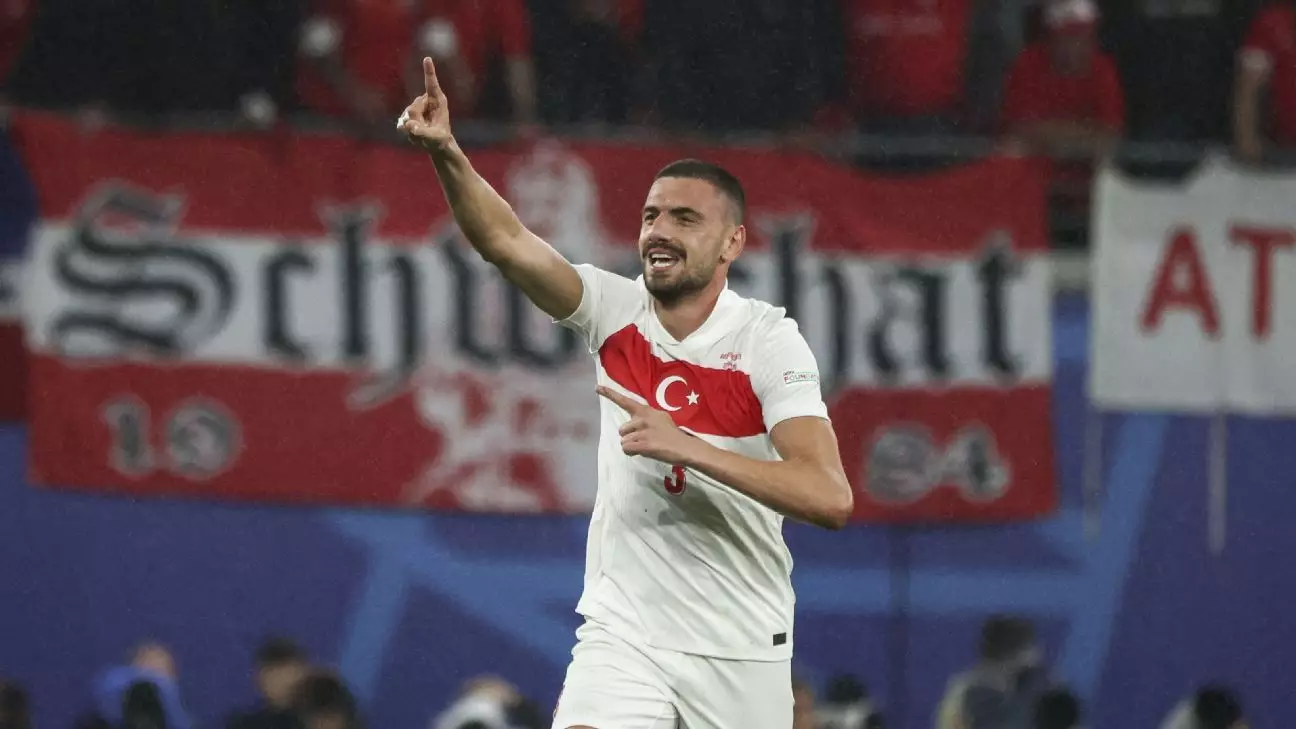Merih Demiral, the Turkish defender, has been at the center of controversy after his celebration during a recent match at Euro 2024. UEFA handed him a two-game suspension for displaying a hand sign associated with an ultranationalist group. The decision was based on the violation of the general principles of conduct, the basic rules of decent conduct, and using sports events for non-sporting manifestations.
As a result of the suspension, Demiral will miss Turkey’s upcoming game against the Netherlands in the quarterfinals, and potentially the semifinal match as well. The ban serves as a significant blow to the Turkish team, as Demiral played a crucial role in their victory with two goals in the round-of-16 game against Austria.
The hand sign made by Demiral has deep-rooted political implications, as it is associated with an ultranationalist group known as the Gray Wolves. This gesture has sparked outrage in various countries, with Germany’s interior minister criticizing the presence of such symbols in football stadiums. The incident has also strained relations between Turkey and Austria, where the Gray Wolf salute is banned.
Despite the backlash, both Merih Demiral and Turkish President Recep Tayyip Erdogan have defended the controversial gesture as a display of patriotic pride. They argue that it is a common expression of excitement and not intended to incite political tensions. Turkey’s vice president has called for the ban to be rescinded, emphasizing the importance of separating football from political decisions.
The incident involving Merih Demiral highlights the intersection of football and politics on the international stage. The use of sporting events as a platform for political expression raises questions about the boundaries between sportsmanship and activism. As football continues to serve as a unifying force for nations, incidents like these remind us of the complex dynamics at play in the world of sports.
Merih Demiral’s celebration at Euro 2024 has not only resulted in a suspension from UEFA but has also sparked debates about nationalism, sportsmanship, and the role of football in politics. The incident serves as a reminder of the power of gestures and symbols in conveying messages beyond the boundaries of the playing field. Moving forward, it is essential for players, officials, and governing bodies to navigate these sensitive issues with caution and respect for the diverse perspectives and values at stake.
